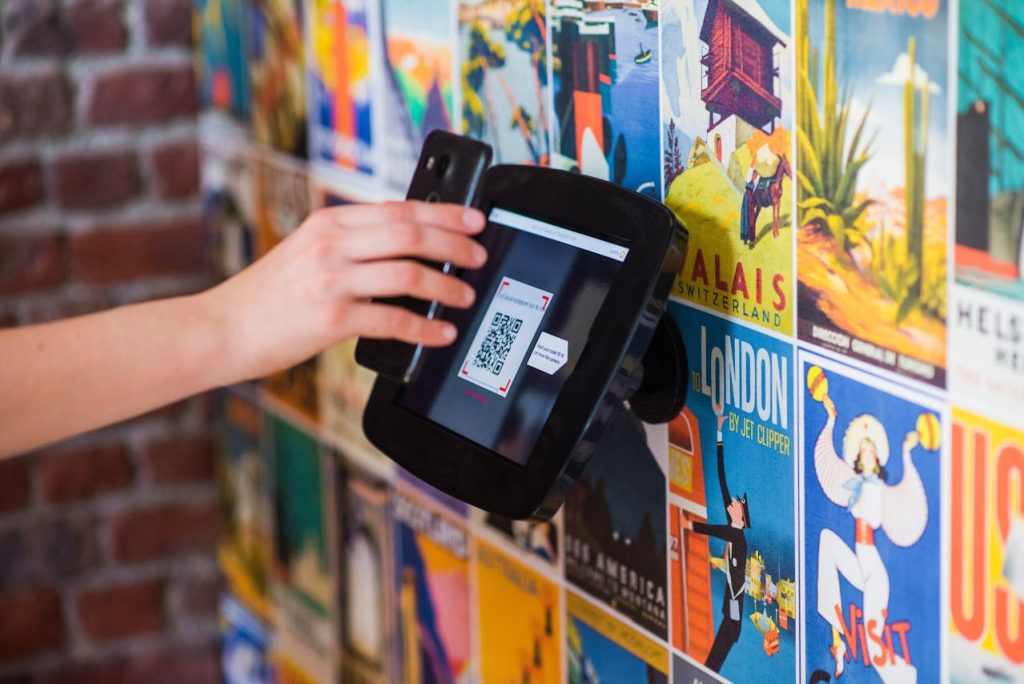
By Bella Zhang January 13, 2025
Operating a thriving bakery requires more than simply creating tasty confections. Effective operations, particularly in managing customer transactions, are crucial for increasing profits and guaranteeing customer satisfaction. Selecting the appropriate payment processor can greatly influence your bakery’s profitability.
Understanding Payment Processors for Bakeries
What Is a Payment Processor?
A payment processor is a service that manages credit card, debit card, and digital wallet transactions between a business and its customers. It plays a critical role in ensuring the swift and secure transfer of funds, which is essential for maintaining a steady cash flow in your bakery.
When a customer makes a payment with a card or mobile payment application, the payment processor manages the authorization, routing, and settlement of the funds. Lacking a dependable payment processor, mistakes or holdups in transactions can result in dissatisfied customers and decreased income.
Why Your Bakery Needs the Right Processor
For bakeries, where transactions are frequent and often small in value, choosing the right payment processor ensures:
Speed of Service: A fast payment process reduces customer wait times, especially during peak hours.
Security: With increasing concerns over data breaches, a processor with robust security features protects both your business and customers.
Payment Variety: Modern customers expect to pay with different methods, from contactless cards to mobile wallets. Offering these options enhances the customer experience.
Cost Efficiency: High transaction fees can eat into your profit margins. The right processor minimizes these costs without compromising on essential features.

Key Features to Look for in a Payment Processor
Transaction Fees and Costs
One of the primary considerations when evaluating a payment processor is the cost. Processors typically charge fees per transaction, which can be structured in several ways:
Flat Rate: A fixed percentage fee per transaction. This model is simple and predictable, making it suitable for small bakeries with consistent sales volumes.
Interchange-Plus: A more transparent model where you pay the actual interchange fee plus a fixed markup. This can be cost-effective for larger bakeries with higher transaction volumes.
Tiered Pricing: Different rates based on the type of transaction (e.g., in-person vs. online). While common, this model can be less transparent and more expensive.
When evaluating expenses, avoid concentrating solely on the fee for each transaction. Think about additional expenses such as monthly charges, equipment expenses, and possible undisclosed fees. Cost-effective options that provide clear pricing can help your bakery save money over time.
Hardware Compatibility
Your bakery probably already uses a POS system. It is essential to guarantee that the payment processor’s hardware works smoothly with your current system. Certain processors offer exclusive hardware, like card readers and terminals, whereas others work with third-party devices.
When evaluating hardware:
Check if the processor offers mobile payment options, which are increasingly popular.
Ensure that the hardware is easy to use for both staff and customers.
Look for durable equipment that can withstand daily use in a busy bakery environment.
Variety of Payment Methods
Offering multiple payment methods is a must in today’s world. Customers expect flexibility in how they can pay. A good payment processor should support:
Credit and Debit Cards: Basic but essential.
Contactless Payments: Tap-to-pay options via cards or NFC-enabled devices.
Mobile Wallets: Services like Apple Pay, Google Pay, and Samsung Pay.
Online Payments: If your bakery offers pre-orders or delivery services, online payment integration is vital.
Providing various payment options can enhance customer satisfaction and potentially increase sales.
Security Features
As digital payments become more prevalent, the demand for strict security protocols increases. Customers rely on you to handle their sensitive financial information, making it crucial to select a payment processor that offers strong security measures.
Look for:
PCI Compliance: Ensures that the processor meets industry standards for handling cardholder data securely.
Encryption: Protects data during transmission to prevent interception by hackers.
Fraud Detection: Advanced processors use AI to detect and prevent fraudulent transactions.
A secure payment processor protects your bakery from financial losses and reputation damage caused by data breaches.
Customer Support
Even with the best technology, issues can arise. A payment processor with responsive customer support can minimize disruptions to your bakery’s operations. Look for processors that offer:
24/7 support via multiple channels (phone, email, chat).
A dedicated account manager for larger accounts.
Comprehensive online resources, including FAQs and troubleshooting guides.
Reliable customer support ensures that any issues are resolved quickly, allowing you to focus on running your bakery.
Cost vs. Features: Finding the Right Balance
Weighing the Costs
For numerous bakery proprietors, cost is a major issue. Nonetheless, the most affordable choice isn’t necessarily the finest. Inexpensive processors might be missing critical features such as strong security, detailed reporting, or compatibility with various payment options.
When evaluating costs:
Consider both upfront and ongoing expenses.
Calculate how fees will impact your profit margins based on average transaction size and volume.
Look for hidden fees, such as early termination fees or chargeback fees.
Prioritizing Features
While cost is important, features should not be overlooked. A payment processor that offers comprehensive features can improve efficiency, enhance the customer experience, and ultimately increase sales.
To find the optimal balance, pinpoint the essential features for your bakery. For instance, if you handle a large number of transactions, it is wise to focus on minimizing per-transaction fees and ensuring quick processing times. Conversely, if your audience consists of tech-oriented customers, enabling mobile wallets and contactless payments could be more essential.
Evaluating Payment Processors: A Comparative Approach
When choosing a payment processor, it helps to compare multiple options. Below is a framework for evaluating processors based on cost and features:
List Your Requirements: Identify the specific needs of your bakery, such as payment options, security, and reporting.
Research Providers: Look for processors that meet your requirements. Pay attention to reviews from other small business owners.
Request Quotes: Reach out to providers for detailed pricing information, including any hidden fees.
Test the System: If possible, try out the processor’s hardware and software before committing.

Popular Payment Processors for Bakeries
Square
Square is commonly selected by small bakeries because of its user-friendliness and clear pricing structure. It provides a straightforward flat-rate pricing structure that is easy to grasp. Square additionally offers a complimentary POS application and cost-effective hardware choices.
Clover
Clover offers a range of hardware solutions and supports various payment methods. Its customizable POS system allows bakery owners to tailor the interface to their specific needs. However, Clover’s pricing can be higher than some competitors.
PayPal Zettle
Previously called iZettle, PayPal Zettle is recognized for its intuitive interface and integration with PayPal’s ecosystem. It’s an excellent option for bakeries that also offer products online, since it integrates effortlessly with PayPal’s online payment system.
Helcim
Helcim uses an interchange-plus pricing model, which can be cost-effective for high-volume bakeries. It also offers advanced features like inventory management and customer relationship tools, making it a comprehensive solution.
Conclusion
Choosing the appropriate payment processor for your bakery means weighing cost against features. Although low prices are attractive, foregoing crucial features may negatively impact your business over time. By thoroughly assessing your bakery’s requirements and examining various processors, you can discover a cost-effective option that maintains functionality. Emphasize clarity, dependability, and adaptability to guarantee smooth transactions and happy customers.
By keeping both cost and features in mind, you’ll be well-equipped to choose a payment processor that supports your bakery’s growth and success.